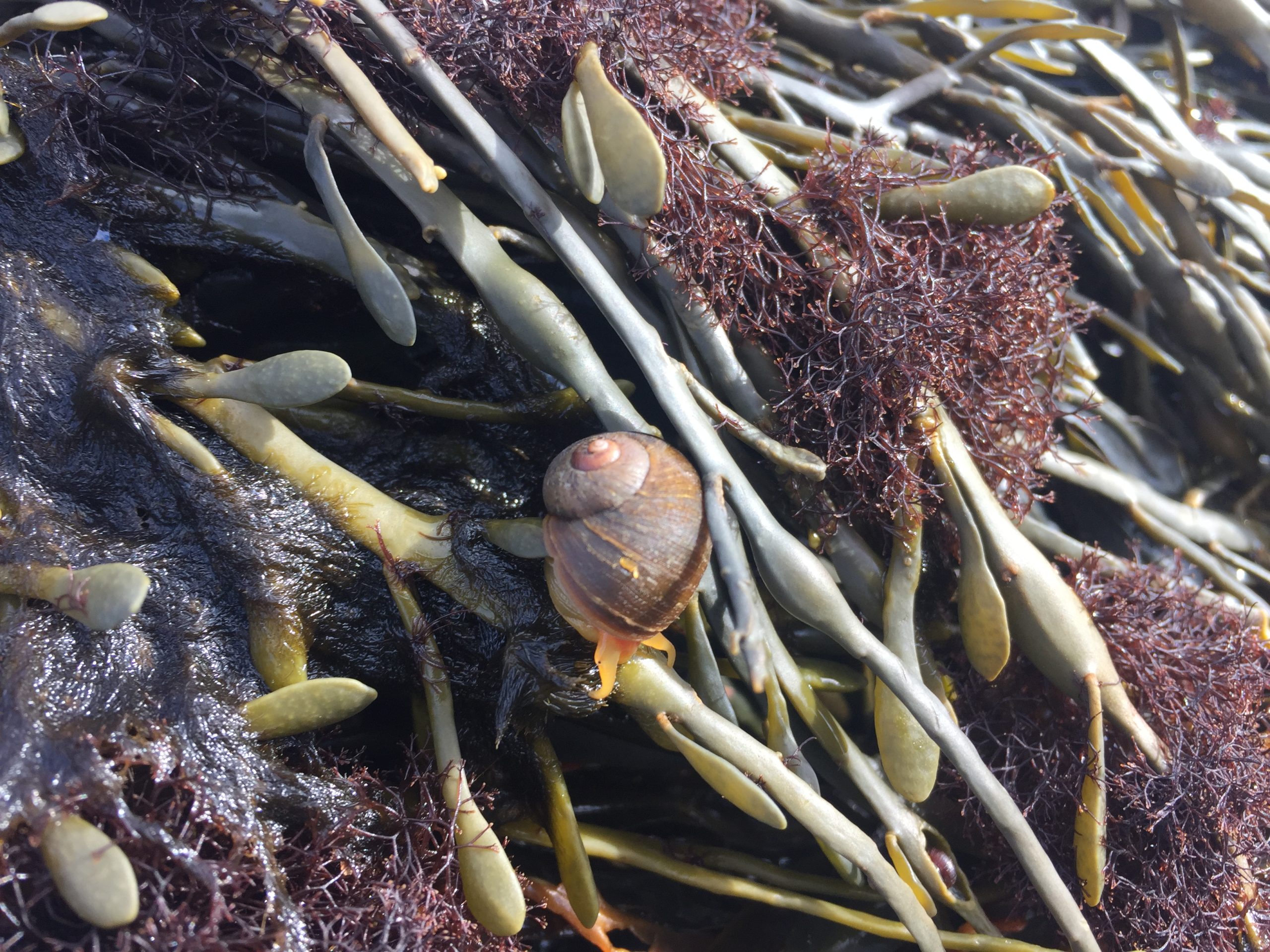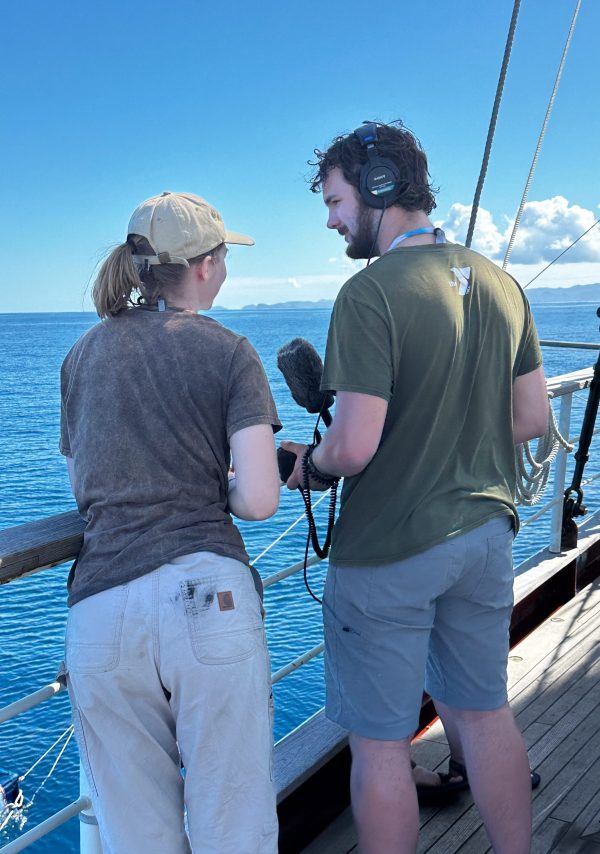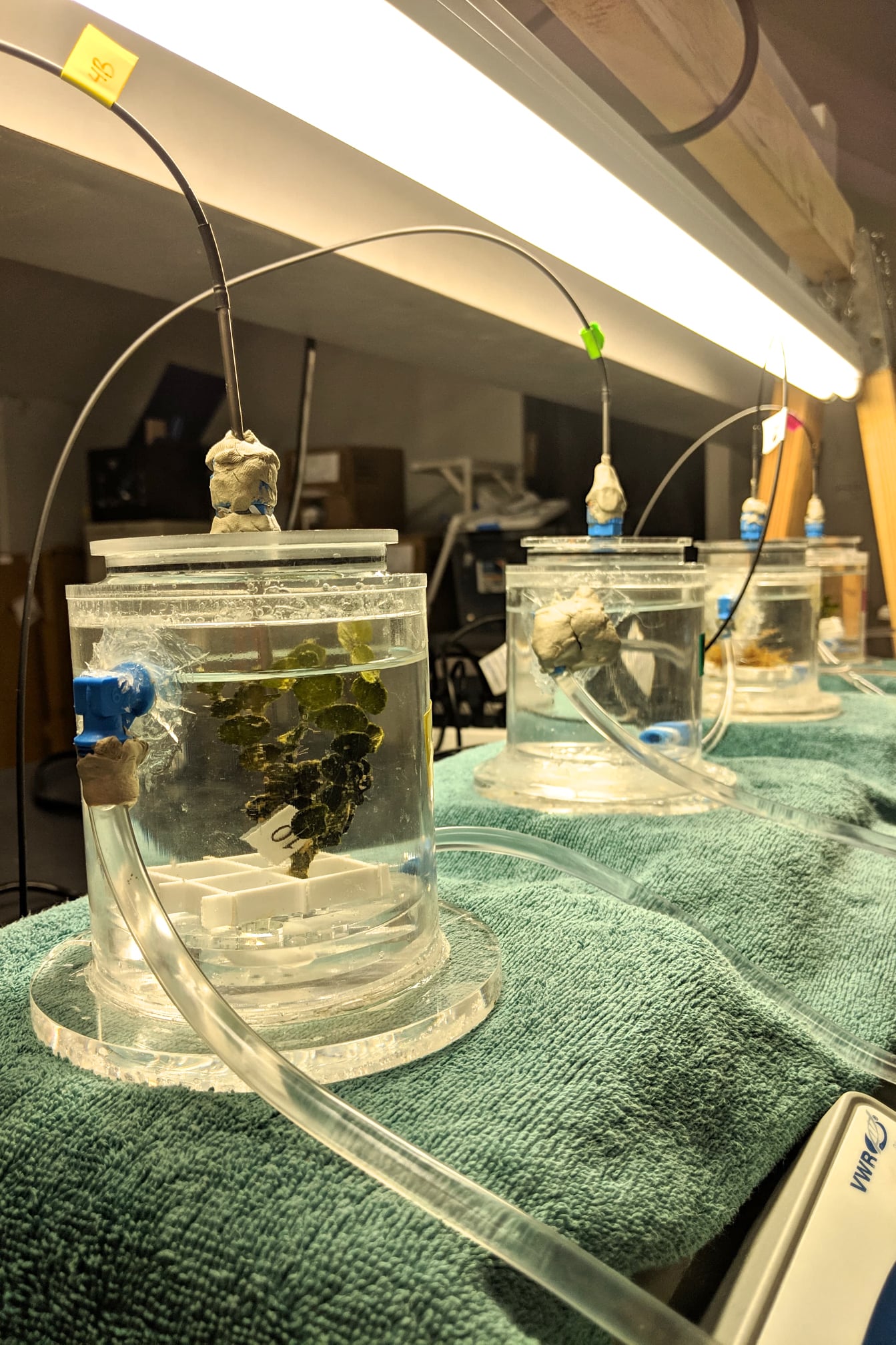Climate Change: The Gulf of Maine
The Gulf of Maine is warming faster than 99% of the rest of the world’s oceans.
Warming water in the Gulf of Maine is altering ecosystems and impacting fisheries. Global climate change affects oceanographic patterns, marine populations, and human communities.
Students participating in this program can expect the following:
- Engage in scientific research on the rapid changes and organismal responses in the Gulf of Maine
- Utilize molecular techniques such as DNA sequencing and contribute to long-term datasets quantifying population genomic responses to the changing climate
- Explore coastal communities’ responses to climate change in the Gulf of Maine
- Collaborate with partners and stakeholders in the Gulf of Maine community to contribute to the entire pipeline of climate and sustainability research (data collection, analysis, and communication) to policy formation and implementation
Fall 2025:
Dates TBD
Shore I Woods Hole SEA Campus
At sea on SSV Corwith Cramer
Shore II Woods Hole SEA Campus
Coastal Communities Shore Tour
Shore III Woods Hole SEA Campus
Locations:
Cruise track: Woods Hole – Stellwagen Bank – Cashes Ledge – Jonesport – Penobscot Bay- Woods Hole
Coastal Communities Shore Tour: Biddeford, Portland, Bath, Boothbay, Stonington, Hurricane Island
SEA’s campus in Woods Hole, MA will serve as this program’s home base
*Port stops and schedule subject to change



Program Description
Climate Change: The Gulf of Maine is a collaborative program exploring the oceanographic science behind the rapidly warming ocean basin, how changes impact marine populations, and how local coastal communities are responding to climate change.
This unique new program combines a short 2-week sailing component aboard SEA’s SSV Corwith Cramer with shore-based travel to give students a multifaceted look at the many threads involved with climate change impacts, responses, and mitigation strategies.
Leveraging the rich history and current research and policy institutions in Woods Hole, MA, students will explore the many dimensions of climate change research and policy. Students will be immersed in the community by working with local partners and stakeholders and participating in the process of developing coastal community climate mitigation and adaptation strategies. Utilizing next generation DNA sequencing techniques, students will investigate how Gulf of Maine marine organism populations are responding to the challenge of a changing environment. Time at sea will provide the opportunity for students to observe and study the oceanographic processes in flux and contribute to long-term datasets used by a broad set of partner research institutions.
Climate change raises practical questions for Gulf of Maine communities: How do coastal towns prepare for climate change effects? What are industries doing to mitigate climate warming and ocean acidification? How can organizations increase their environmental and cultural sustainability? We will simulate, role play, investigate, and communicate answers to all of these questions, working among and forming bonds between governmental, business, academic, and social sectors. This web of experiences can provide pathways to careers in climate change research, mitigation and adaptation.
Climate Change: The Gulf of Maine will finish with a capstone experience. Students will present their scientific research and policy research products to the many stakeholders and partners SEA collaborates with throughout the program as well as the local Woods Hole community.
*Prerequisites are sophomore status and one introductory science course at the college level.
Academic Credit
This program carries 15 semester hour credits from Boston University for successful completion of the program.
Course Descriptions & Syllabi
Ocean ecosystem change in the Anthropocene: warming, acidification, fisheries depletion, and pollution. Review principles of circulation, seawater chemistry, nutrient dynamics, and biological production to understand causes and consequences of change. Conduct field measurements for contribution to time-series datasets.
Comparative and issue-driven introduction to managing human uses and conserving coastal and ocean places and resources. Explore concepts of technology, governance, sector and ecosystem management, and marine protected areas through expert content lectures, topical seminars, and field trips.
Advanced policy research focusing on a topic of current importance (may include fisheries, biodiversity, marine spatial planning, and cultural heritage). Emphasis on theoretical concepts, research methods, and communication skills. Requires critical review paper, original research, final report and presentation.”
Design and conduct original oceanographic research. Collect data and analyze samples. Compile results in peer-reviewed manuscript format and share during oral or poster presentation session. Emphasis on development of research skills and written/oral communication abilities.
Syllabi for previous years are available for review. Detailed course content for future programs is dependent on cruise track, seasons, port stops, current events and faculty, and will be available closer to the program start date.







